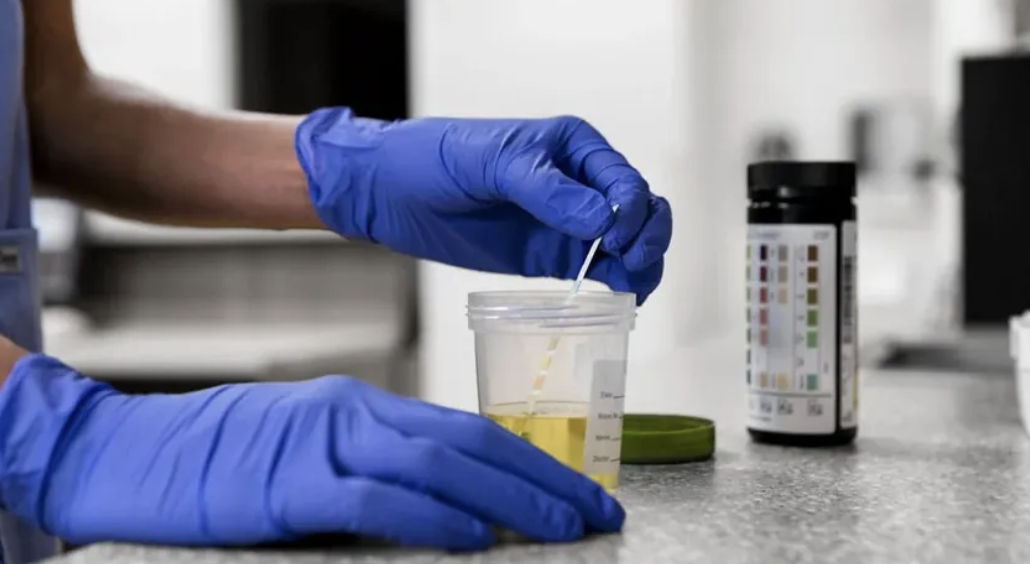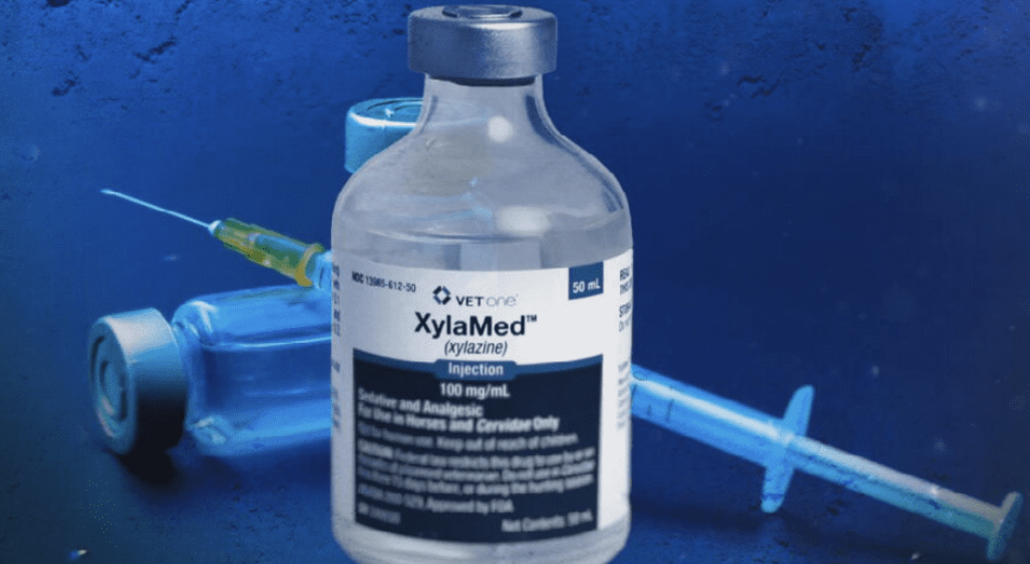Can Suboxone help improve mental health? Yes, it can. Suboxone, primarily used for opioid addiction treatment, also reduces anxiety, depression, and stress caused by withdrawal symptoms. In this article, we’ll explore how Suboxone can help with mental health and what you can expect.
Key Takeaways
- Suboxone can alleviate anxiety and depression symptoms in opioid-dependent patients by managing cravings and withdrawal, indirectly improving mental health.
- The pharmacological properties of buprenorphine, a component of Suboxone, stabilize brain chemistry and can enhance emotional regulation, aiding in recovery from both addiction and mental health issues.
- While Suboxone can help some individuals with co-occurring mental health disorders, it may also cause adverse effects like mood swings and increased anxiety, necessitating close monitoring by healthcare providers.
Can Suboxone improve mental health symptoms?
Studies show Suboxone may reduce anxiety and depression symptoms in opioid-dependent patients by managing opioid cravings and alleviating withdrawal symptoms to reduce cravings. When someone is in the throes of opioid withdrawal, the accompanying stress and anxiety can be overwhelming. Suboxone helps to mitigate these withdrawal symptoms, leading to improved emotional stability and reducing stress and anxiety.
Suboxone treatment is not designed specifically for mental health issues, but it can have positive side effects by addressing addiction-related conditions. Managing opioid cravings and withdrawal symptoms with Suboxone indirectly leads to improved overall mental health. This dual benefit is particularly crucial during and after withdrawal when mental health can be most fragile.
The effects of taking Suboxone on mental health can vary. This variation should be kept in mind. While many experience improved mood and reduced anxiety, others may encounter mood swings or increased anxiety. Anyone considering Suboxone should consult a healthcare provider since individual responses can differ significantly.

How Suboxone works in the brain and its link to mental health
Suboxone, containing buprenorphine, acts as a partial agonist at the mu-opioid receptor. This means it activates these same receptors but to a lesser extent than full agonists like methadone. This partial activation helps alleviate withdrawal symptoms without producing the intense highs associated with other opioids, making it safer for addiction treatment.
Buprenorphine’s unique pharmacological properties enable it to stabilize brain chemistry disrupted by opioid addiction. Buprenorphine binds to the brain’s opioid receptors with high affinity, mitigating cravings associated with opioid use disorder and helping patients focus on their overall recovery, including mental health. This stabilization can lead to a reduction in anxiety and an improvement in mood, providing a more robust platform for emotional and psychological rehabilitation.
Moreover, buprenorphine also has analgesic properties, which can provide relief from pain, further enhancing its utility in treating co-occurring mental health issues. Addressing both physical and emotional pain with Suboxone enables individuals to regain control over their lives, contributing to better mental well-being.
What mental health symptoms can Suboxone help with
Suboxone primarily aids in the management of opioid addiction, which indirectly leads to improvements in mental health by relieving withdrawal symptoms. The mental health issues it may alleviate include anxiety, depression, and emotional dysregulation.
Stabilizing these conditions with Suboxone helps individuals navigate the complex journey of recovery more easily and confidently.

Reduction in anxiety
Suboxone can help reduce anxiety by:
- Stabilizing brain chemistry that often becomes imbalanced during opioid withdrawal, bringing a sense of emotional ease.
- Making individuals feel more in control and less anxious.
- Activating opioid receptors in the brain can reduce anxious behavior and promote relaxation.
While Suboxone is not specifically designed as an anxiety disorder treatment, its ability to alleviate withdrawal symptoms can prevent the onset of anxiety during the recovery process. Combining Suboxone treatment to treat anxiety disorders with psychotherapy, anti-anxiety medications, and medication can enhance anxiety management effectiveness, helping individuals reduce symptoms and achieve a more stable and relaxed state of mind.
Improvement in depression
Suboxone use has been linked to improved depressive symptoms, particularly for individuals with dual diagnosis. Buprenorphine, a component of Suboxone, activates opioid receptors linked to mood regulation, potentially easing depressive symptoms. Research indicates that Suboxone may alleviate symptoms of depression, including feelings of sadness and anxiety.
Some studies suggest that Suboxone could be more effective than traditional antidepressants for patients with major depression, especially those with co-occurring opioid dependence. Suboxone’s unique composition, which minimizes the risk of abuse compared to standard opioid treatments, makes it a viable option for treating major depressive disorder in the context of opioid use disorder.
Better emotional regulation
As Suboxone helps to stabilize withdrawal symptoms, individuals often experience better emotional control and reduced stress. Mitigating the discomfort associated with withdrawal with Suboxone enables individuals to achieve a more stable emotional state, contributing to better mental health.
However, long-term Suboxone use can lead to abnormal emotional experiences, including heightened negative responses and reduced positive affect. This phenomenon underscores the need for further investigation into emotional regulation and its impact on Suboxone addiction and recovery.
Can Suboxone worsen mental health for some individuals?
Although Suboxone is intended to aid in addiction recovery, it can also lead to negative mental health effects such as:
- Mood swings
- Changes in personality
- Increased anxiety or depression, possibly due to its effects on the brain’s response to withdrawal
- Insomnia
- Sexual dysfunction
These side effects can further impact mental health and well-being.
The response to Suboxone can vary widely; while some experience improvements in mental stability, others may face exacerbated symptoms. Close monitoring by a healthcare provider is essential to address any adverse mental health reactions while on Suboxone.
Improper use of Suboxone, such as self-medicating or combining it with other medications and other substances, can lead to heightened substance abuse, opioid misuse, psychological dependence, and mental health risks.

Suboxone vs. methadone for mental health stability
Suboxone vs methadone treatments, while both effective for opioid addiction, have differing impacts on mental health. Suboxone, as a partial opioid agonist, has fewer sedation risks compared to Methadone, which is a full opioid agonist and may offer stronger mood stability in high-dependency cases. Opioid agonists may also play a role in this context.
This difference in pharmacological action leads to varying impacts on a person’s mood and emotional regulation.
Mood side effects comparison
Suboxone may lead to mental and behavioral side effects such as slowed reaction times, sleepiness, and coordination challenges. Methadone, unlike Suboxone, can provide more intense mood-related side effects due to its full opioid agonist properties. Patients using Suboxone might experience withdrawal symptoms if they decrease their dosage suddenly, which can affect their mood.
Some users of Suboxone report mood disturbances, which contrasts with Methadone’s more consistent effect on mood stabilization. Suboxone can lead to unpredictable emotional changes, including mood swings that range from happiness to irritability.
Impact on depression and anxiety
Suboxone may help alleviate symptoms of depression and anxiety, particularly during the early stages of recovery when these issues are most pronounced. Suboxone can enhance overall stability and lessen anxiety by alleviating opioid withdrawal symptoms.
However, some individuals report experiencing increased anxiety or mood swings due to Suboxone’s effects on the brain’s reward system. Changes in personality, such as increased sociability or withdrawal, can occur in some users of Suboxone, varying widely among individuals.
Suboxone treatment should always be supervised by a healthcare provider to manage any adverse effects, including symptoms of anxiety and depression.
How Suboxone fits into dual diagnosis treatment
Suboxone is integrated into dual diagnosis treatment plans by addressing both substance use disorders and co-occurring mental health conditions. Patients diagnosed with both opioid use disorder and mental health disorders like bipolar disorder or PTSD may find Suboxone to be a vital part of treatment.
Stabilizing the symptoms of opioid dependence with Suboxone enables individuals to engage more effectively in psychotherapy and other treatments for their mental health conditions. This integrated approach ensures that both the addiction and the mental health issues are addressed simultaneously, leading to more comprehensive and effective treatment outcomes.
Psychiatric support and therapy with Suboxone
Effective recovery from opioid addiction typically combines Suboxone treatment with emotional support through counseling and therapy. Individual therapy helps patients explore emotional triggers and develop coping strategies alongside their Suboxone treatment. Group therapy fosters peer support and shared experiences, enhancing the overall recovery process for those on Suboxone.
Family counseling is often part of treatment plans to mend relationships and create a supportive home environment for individuals in Suboxone therapy. Treating co-occurring conditions such as anxiety or depression is essential, especially when taking Suboxone with mental health medications, which may involve interactions.
What the research says: Suboxone and mental health
Research indicates that Suboxone can effectively alleviate symptoms of anxiety and mood disorders in patients with opioid dependence. Studies have shown that buprenorphine may have mood-regulating properties, influencing emotional responses in individuals with mood disorders.
Key study 1: Anxiety and mood stability improvements
A study published in the Journal of Clinical Psychopharmacology noted that patients using Suboxone showed significant reductions in anxiety symptoms. Low doses of buprenorphine can reduce attention to negative emotional stimuli, particularly in those with higher anxiety and depression scores.
A controlled study found that buprenorphine enhanced the perceived positivity of social images while diminishing attention to fearful faces, particularly among participants with more severe mood symptoms. These findings suggest that buprenorphine may exert antidepressant-like effects by modulating the processing of emotional stimuli.
Key study 2: Dual diagnosis treatment effectiveness
Research highlighted in the Journal of Addiction Medicine found that Suboxone treatment significantly improved outcomes for patients with both opioid use disorder and comorbid psychiatric conditions. Buprenorphine has shown promise in treating patients with both substance use and mood disorders, suggesting its potential as a dual diagnosis treatment.
The effectiveness of opioid agonist treatment (OAT) in improving mental health outcomes suggests a need for integrated care models that combine substance use disorder and psychiatric treatment, including medication-assisted treatment and effective medication, as highlighted by the Mental Health Services Administration. Opioid use disorder OUD and country-specific healthcare practices influence the rates of diagnosed mental disorders among OAT patients, highlighting the importance of tailored treatment strategies for co-occurring conditions.
Is Suboxone right for people with mental illness?
Suboxone can be effective for those with co-occurring mental health disorders, as it helps manage both addiction and psychological issues simultaneously. Individuals battling active addiction often struggle with mood and emotional regulation, making simultaneous treatment for both addiction and mental health vital.
Stabilizing addiction with Suboxone first may enable individuals seeking treatment to engage in more comprehensive mental health treatments later. The treatment process should be approached in manageable steps, allowing individuals to address both their addiction and mood disorders effectively.
Bottom Line: What to consider before using Suboxone for mental health
Before starting Suboxone treatment, it’s crucial to evaluate the potential for worsening mental health symptoms, as Suboxone can exacerbate issues like anxiety and depression in some users. Patients should also be aware of the risk of dependency, as Suboxone itself carries the potential for addiction, particularly when misused.
Monitoring is essential; any changes in mood or mental health should be closely observed during Suboxone treatment. A healthcare professional should be consulted to weigh the benefits of using Suboxone against possible mental health risks. A comprehensive treatment plan should integrate psychological support with Suboxone to address underlying mental health conditions.
FAQs about Suboxone and mental health
Can Suboxone cause depression?
Suboxone may cause increased depression in some individuals, especially those with pre-existing mental health conditions, despite its potential to alleviate depressive symptoms in others. It is essential to monitor mental health closely during treatment.
Does Suboxone help with PTSD?
Suboxone can indirectly assist individuals with PTSD by managing co-occurring opioid addiction, which may improve overall mental health. However, it is not specifically designed for treating PTSD itself.
Is Suboxone an antidepressant?
Suboxone is not an antidepressant, although it may have mood-regulating effects that can resemble those of traditional antidepressants.
Can I remain with my primary care physician while receiving Suboxone treatment?
You can maintain your relationship with your primary care physician during Suboxone treatment, as care coordination is feasible.
Is Suboxone addictive?
Suboxone is not considered addictive when used under medical supervision, as its benefits outweigh the potential risks of dependency. It is essential to follow a healthcare provider's guidance to ensure safety and effectiveness.
















